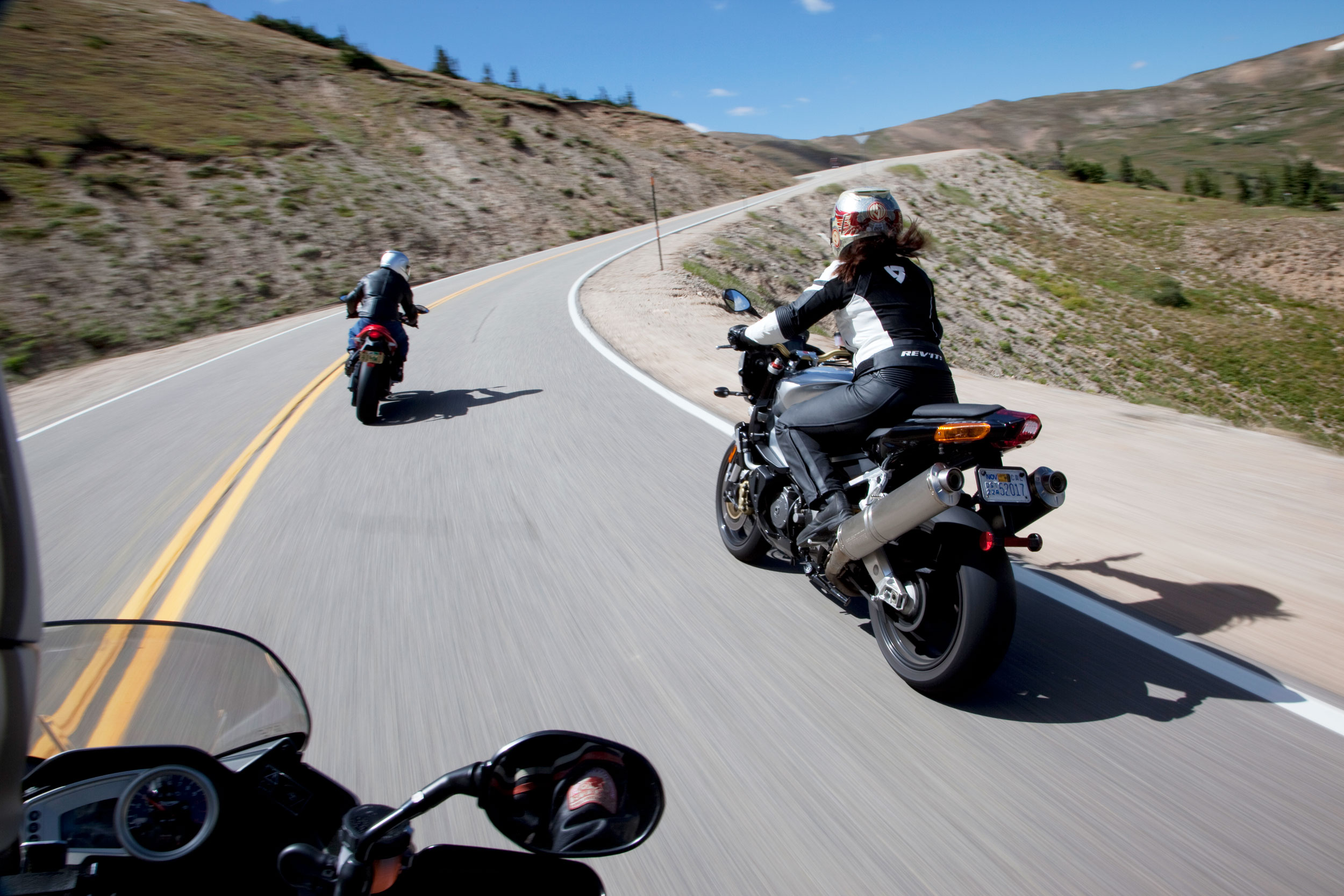American Motorcyclist February 2018
Beyond the Poker Run
Tips For Changing Up The Ride


In some states, that’s a problem with the gambling commission, since there’s no actual game of skill. I personally believe the skill comes in getting from point A to point B on two wheels. Can that be argued?
So, some promoters will add in a game of skill. Perhaps one checkpoint will involve a dart throw, pool shot or ring toss. In that event, most gambling commissions won’t intervene and all is well.
Some groups repeat an event each year with the same checkpoints and same “skill” game on the same weekend. Poker runs serve their purpose, but there’s no reason you can’t inject a little ingenuity and make it more fun.
Enter, the Fun Run.
In the Fun Run, all bets are off, as there will always be one checkpoint of skill. The fun run breaks free of the poker run by not including a “best hand” outcome, instead relying on the promoters’ creativity to stage a fun concept that most riders have not experienced.
Here is a list of fun runs we’ve put together that have kept our events fresh, intriguing and free of the gambling commission’s watchful eye.
1. Real skills. Who can do a cone weave? How about a slow ride? What about keeping a bike at the legal speed limit between two checkpoints? A skill-based fun run reawakens riders to the importance of basic skills. And many can benefit from a brush-up like this.
2. Packing right. This sort-of scavenger hunt challenges participants at each checkpoint for items like tire repair gear, hydration and snacks, first aid items, tools and other things a savvy rider would carry on any given day.
3. Viewpoints. If you’re in a scenic area with lots of overlooks, make use of them. Many have parking areas to accommodate multiple riders.
4. Historic places. Old hotels, the site of the old mill, the old courthouse, schoolhouse and much more can be the basis for an informative fun run.
5. Churches. This one is popular with members of the Christian Motorcyclist Association. But don’t let it scare you off if you don’t subscribe. There are a lot of cool churches—old, new, plain and fancy. You never know what lies within.
6. School houses. In any one area there may be new schools, as well as old. Some may have nothing left but foundations from centuries ago. Do your homework and enjoy educating others about where they are riding.
7. Going postal tour. Create a series of fun run cards based on old postage stamps. Each stamp is worth whatever its penny or dollar value is in points. Six cents is worth 6 points, $15 is worth 15 points. And where are the checkpoints? You guessed it: U.S. post offices.
8. Bridges. Pretty much anywhere you want to hold a fun run, there are bridges that can be used for checkpoints. If you live in Oregon, you can pick from more than 60 covered bridges alone.
9. The rolling fun run. In the rolling fun run, the same designated dealer deals at every checkpoint. After Checkpoint 1, he or she rides to Checkpoint 2, where the players are waiting. While the hares may want to go as fast as they can go, they should bring a book to read while waiting for the tortoise dealer to arrive.
10. The selfie tour. Short on staff? No biggie, just put together a selfie tour that riders can do at their own pace within an allotted time. Riders get points for taking a selfie at specified locations. The tie-breaker is a post-ride Q & A about the places they visited along the way. Inevitably, a winner rises to the top.
11. End of the road. If you’re in a place where you can run a paved and dual sport fun run at the same time, simplify things with shared check points. The road riders ride to the end of various paved roads as the dual sport riders approach from the oncoming dirt roads.
12. Natural wonders. Ice caves, lava tunnels, petrified forests, etc., all lend themselves well to fun run check points.
13. Anniversary recognition. During the 10th anniversary of our Rally in the Gorge, I thought it was important to acknowledge people who had volunteered, or simply attended our event, during the previous decade. To do that, we compiled the names of everyone who had attended the event, then created cards about key people. The number of years attended equaled the points awarded to participants who drew their cards.
14. The fundraiser. You could be raising funds for a good cause, like the volunteer fire department, the county animal shelter or some other deserving nonprofit. And your checkpoints might be fire houses, vet clinics or social service outlets.
These are just a few ideas you can work with to break free from the habitual poker run mindset most events revolve around.
Tom Mehren is an award-winning AMA Road Riding promoter living in Seattle, Wash., who has put on AMA events for over a decade.
